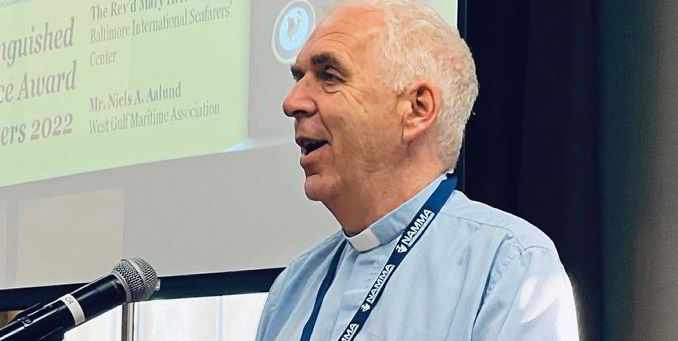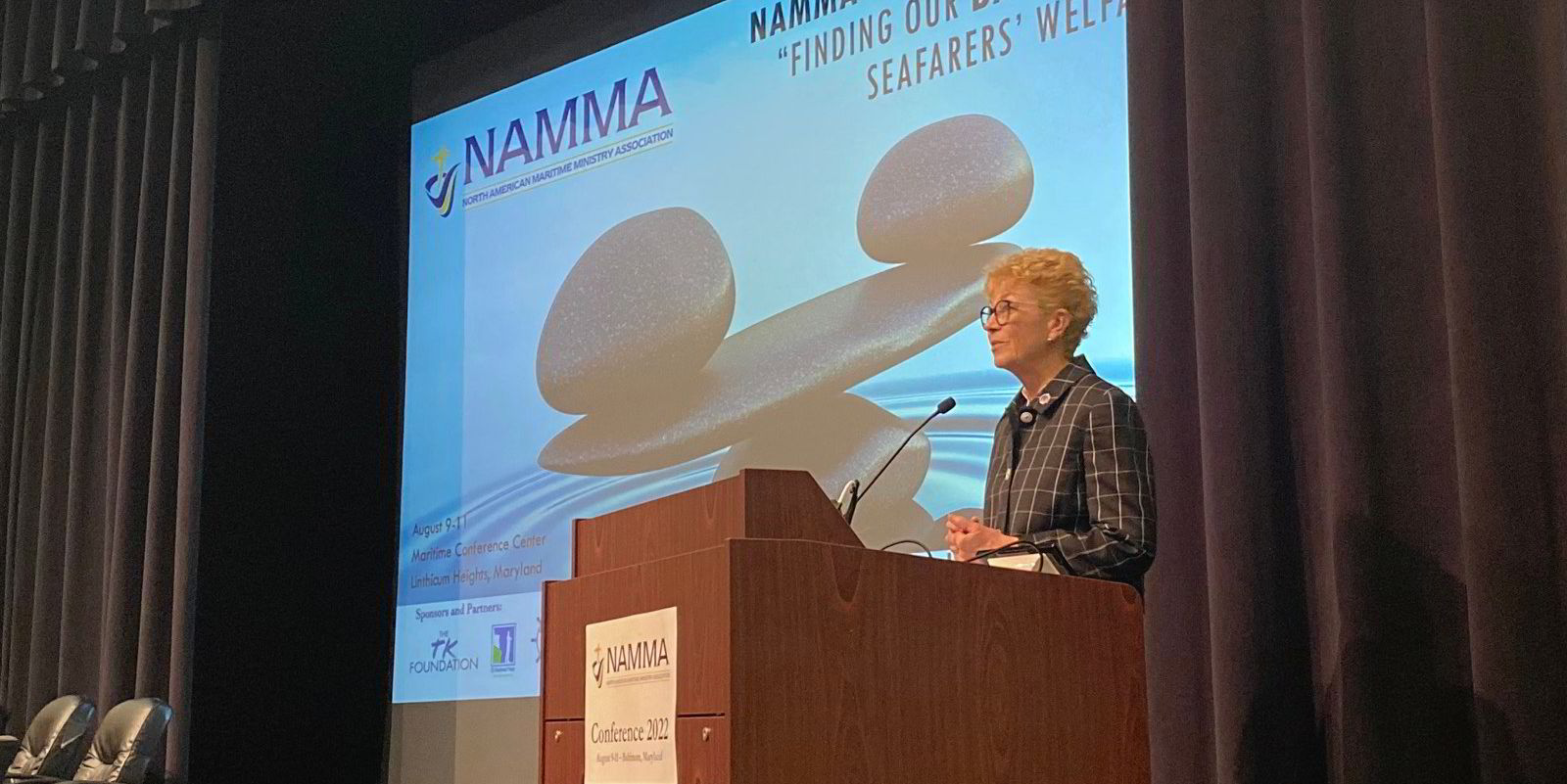The industry needs to support maritime ministries as they rethink and reshape their work, Mission to Seafarers secretary general Rev Andrew Wright said.
Speaking at the North American Maritime Ministry Association conference outside Baltimore this week, Wright said the faith-based charities provide an important service to the industry in caring for the men and women who crew the world's fleet.
“We’re the people who stand alongside seafarers, we’re in the Seafarers Happiness Index, and that is every bit as important if not more so than the people who bring the water and the oil and the food on board,” Wright said.
“We need the shipping industry — where there is loads of [money], especially at the moment, money is flowing out through the shipping industry — we need them to stand up, stand beside us and fund our work in generous ways.”
We need the shipping industry — where there is loads of [money] ... — to stand up, stand beside us and fund our work in generous ways
Rev Andrew Wright
Wright, who noted his organisation has received industry support, said even before Covid-19 touched off the crew change crisis and a seafarer shortage, things were changing for the faith-based organizations.
Shorter time at port, smaller crews, greater access to wireless internet and increased security measures keeping chaplains on the shore were forcing the faith-based organisations to change, he said and Mission to Seafarers-affiliated centres had experienced a 93% drop in traffic from 2019 to 2021.
Wright said that trend was beginning to reverse itself in North America and Europe, though it still persisted in Latin America and much of Asia.
“We can no longer guarantee the old realities,” he said.
He suggested seafarers’ centres need to be in or very close to the port, with many of the existing buildings likely needing a facelift. They may even need to go mobile.
“They should be fresh and attractive buildings and offer the services which seafarers actually want or need. The buildings themselves internally, and even externally, should raise the spirits.”
Ship visitations should remain at the core of the work the ministries do, but might have to become more flexible, like utilising nighttime visits like a centre in Singapore is doing.
Centres will have to focus digitally, with outreach through social media or other methods.
“Your work is desperately needed. But times are changing,” Wright said.
“We have to be entrepreneurial, and creative as we rebalance our work in the light of fast-changing circumstances if we're to continue providing relevant and financially-sustainable ministry to sea bearers rooted in our core Christian historical emphasis, but opened to a changing future.”






